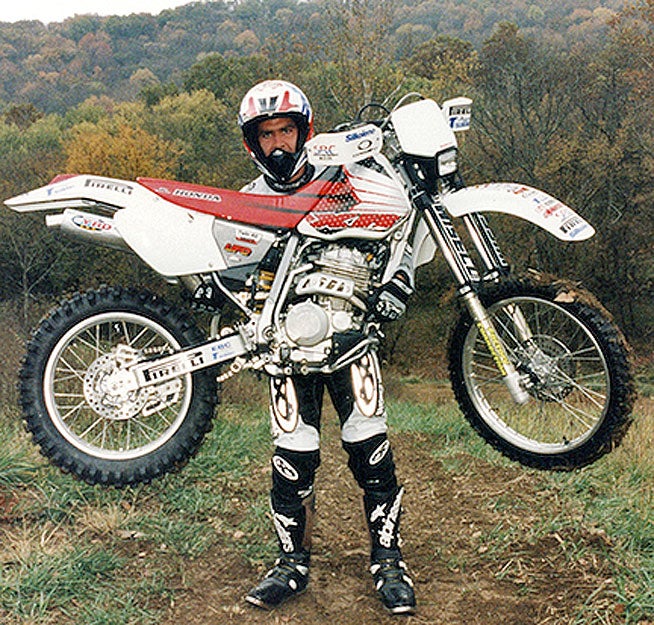Fabled four-stroke-riding off-road champion Scott Summers gets a deserved induction into the American Motorcyclist Association Hall of Fame.

Scott Summers raced, and won, on four-strokes when four-strokes weren’t cool. Now, the AMA is recognizing Summers for his amazing nine AMA off-road national championships aboard Honda’s burly XR600R off-road machines by inducting him into the AMA Hall of Fame.
Summers, who was elected through the Off-Road Competition category, will be inducted at the 2014 AMA Motorcycle Hall of Fame Induction Ceremony Friday, Oct. 17, in Orlando, Florida. The event will be part of the AMA National Convention being held in conjunction with the American International Motorcycle Expo (AIMExpo), October 16-19.
“Scott Summers not only won off-road championships in some of the most challenging tight woods terrain, but he did so his way–competing on a motorcycle that most others appreciated for its proficiency in wide-open desert racing,” said Ken Ford, a member of the Hall of Fame executive committee and treasurer of the AMA board of directors. “Scott won and thrived, becoming one of the most prolific off-road champions in AMA-sanctioned national championship competition, and in the process helped introduce a new level of professionalism to off-road racing in America.”
As the accompanying photo shows, Summers, of Petersburg, Kentucky, was just as burly as the heavyweight four-stroke singles on which he competed and won the 1990, 1991 and 1992 Grand National Cross Country championships, defeating riders on much lighter and more agile two-stroke motorcycles. After three years of missing out on the title, Summers reclaimed the GNCC title 1996 and successfully defended it in 1997. He also won four AMA Hare Scrambles National Championships in 1990, 1991, 1993 and 1995 and collected three gold medals while competing for Team USA at the International Six Days Enduro.
“I’m humbled and honored, but to be honest, I feel like any success I achieved was a result of a group effort,” Summers said. “I was surrounded by some visionary people who contributed to my racing–my dad, Wade, was instrumental in persuading me that four-strokes could be competitive and my friend, Fred Bramblett, was my mechanic, my business manager, my agent and my publicist. I was blessed in that I don’t know if any off-road racer ever had the support that I had. I don’t feel like I’m responsible for all the accolades that I received while competing, and I’m happy to share the limelight with all those who drove my success.”
Although Summers acknowledged that the XR600R had a weight disadvantage compared to the much smaller two-strokes ridden by his rivals, he noted that the Honda’s smoother power delivery and torque gave him a performance edge.
“In 1982, I got a Honda XR200 for Christmas, and I fell in love with the type of power that bike made,” he said. “There came a day when I felt I was capable of going faster than that bike would let me. That was in 1985 when I got an XR600. It was very similar to the XR200, only much more in every way. I loved the power characteristics, and it more than compensated for the fact that I was riding a bike 50-100 pounds heavier than the other bikes. Because of the smooth power, I could relax more, and that paid big benefits during a three-hour race.”
Summers is the fourth member of the AMA Motorcycle Hall of Fame class of 2014 to be announced. He joins three previously announced inductees: motocross pioneer Pierre Karsmakers, racer and motorcycling advocate Tom White, and museum and racetrack founder George Barber.
 Your Privacy Choices
Your Privacy Choices